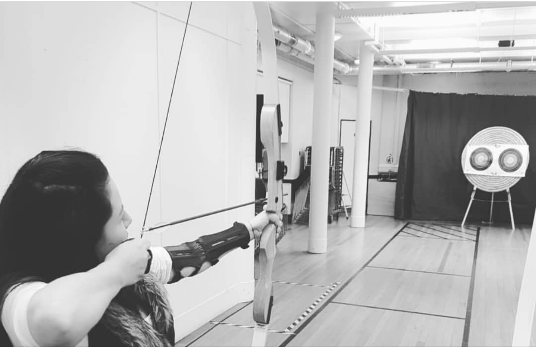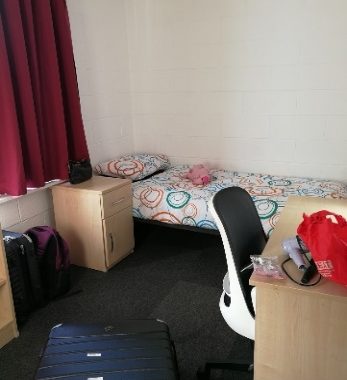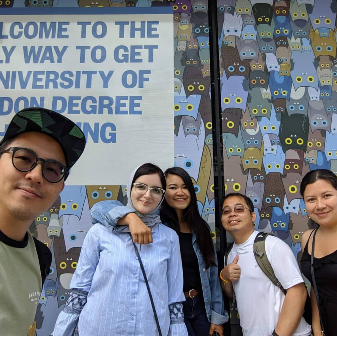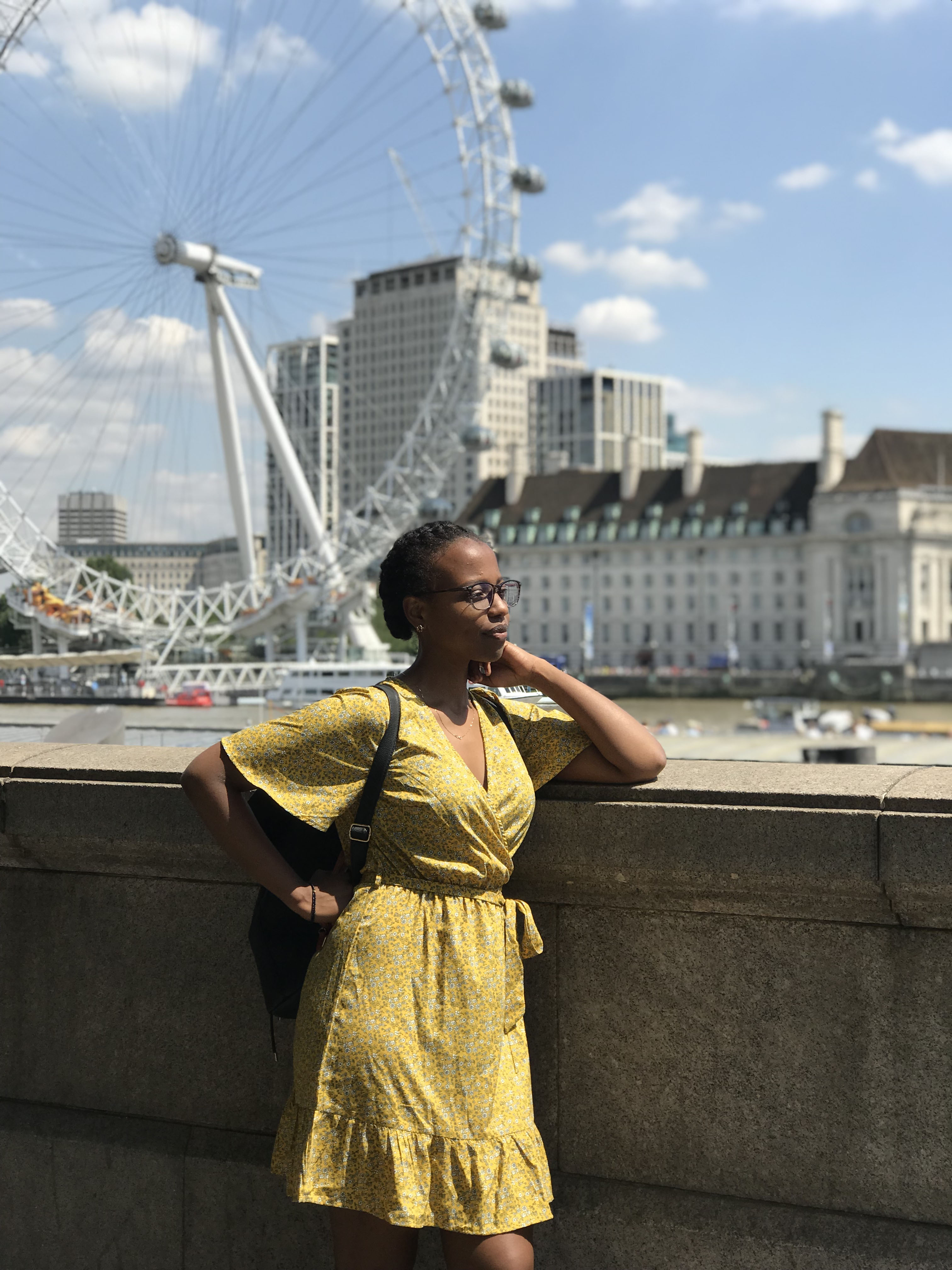Sports Management 2017 graduate Bethan Taylor reflects on her time at Birkbeck and shares her top tips on how to find a balance between your job and your studies.
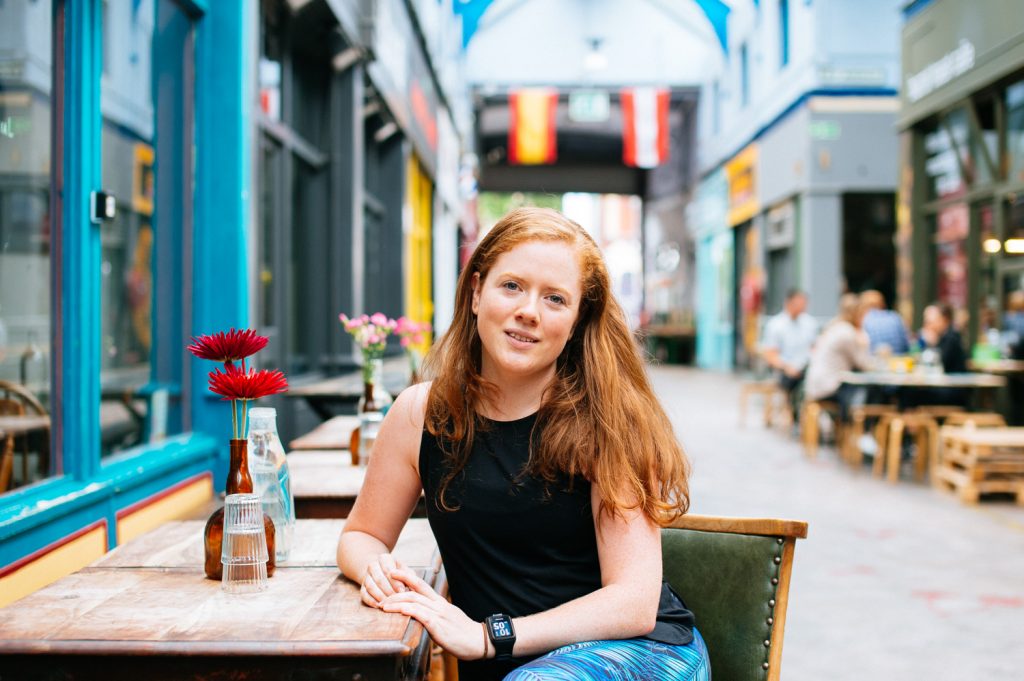 Image: Anna Rachel Photography
Image: Anna Rachel Photography
I studied MSc Sports Management at Birkbeck from 2015-2017, taking a special interest in women in endurance sport. I’m a civil servant working in the Ministry of Justice, and I also write for a range of publications including my own blog A Pretty Place To Play which features my new podcast The Mental Health Podcast. When I’m not working or writing, I like to run and am currently training for my first ultra-marathon – 56 miles from London to Brighton next year.
There are lots of reasons why I decided to go back and study for an MSc – I’d been working in financial services for around five years and while I loved my job, I wasn’t finding it that intellectually stimulating. At the same time, I’d become really involved in running and was writing for various print and digital publications on the topic of women in sport, which really peaked my curiosity. I decided that I wanted to be able to talk with authority on the social issues in sport, and in my mind, the best way to do that was through postgraduate study.
The whole experience at Birkbeck was amazing! I loved that I was able to study an academically rigorous and challenging course while still progressing my career. The academics I worked with in Birkbeck Sports Business Centre were really open and supportive, encouraging us to question everything and to challenge each other, which I really enjoyed.
Being able to work while I studied meant I could pay my course fees without worrying about debt. Academically, it was great studying over two years – it meant that I could really take advantage of everything Birkbeck had to offer, simply because I was there longer! It also meant I had more time to think about what I wanted to research for my dissertation, which meant I got to dig deep into issues that really fascinated me.
There were challenges, of course, one of the biggest being that I felt like I was constantly saying no to social events and letting people down. That was really hard. Thankfully my friends and family were all really supportive and totally understood when I had to decline a dinner invite again, or sloped off home after one drink to study!
Between working and training for a marathon and a couple of half marathons my time at Birkbeck was pretty busy, and it did mean that I didn’t get involved in any societies or clubs. However, I did have a mentor and she was fabulous – it was great to be able to sit down with someone and discuss my career and direction really frankly.
I think it’s really important for people in the sports/fitness industry to really understand the unique nature of their business, as well as the social issues that surround people’s engagement in sport (my area of interest). Courses like the MSc Sports Management are helping to develop a new generation of professional sports administrators, as well as the academics who’ll be thinking about how we can challenge ourselves and develop the industry in the future.
I think education is a life-long pursuit, and I was really lucky to have great role models in my parents who both studied while working throughout my childhood (in fact my Dad was also at Birkbeck last year!). Learning new things helps to boost your creativity, enhances your problem-solving skills and challenges your perceptions – it makes life a lot more interesting! I also believe that life shouldn’t be all about work, you need some challenges that are just for you, whether that’s studying for an MSc in a subject that fascinates you or running a marathon (or both!).
If you’re thinking of studying at Birkbeck, don’t question whether you can do it, as you absolutely can! You’ll need to be super organised both at work and with your studies, and there will be some sacrifices, but it’ll be worth it in the end.
Before you start your course it’s worth chatting to your employer about flexible working – I always kept my boss in the loop with my timetable so she knew why I was bolting out the door at 5pm. Also make sure you talk to your friends and family, as you will need their support and understanding because there will be times when things feel tough.
When I was studying, being organised was essential! You cannot over-plan when it comes to studying while working. Make sure you leave lots of contingency time, just in case something kicks off at work or you get sick.
Looking back on my time at Birkbeck, I can honestly say it’s one of the best places in the world to study sports management – but beyond that, there’s so much more! Studying while working is a great way to demonstrate to employers a whole range of desirable skills, like time management, organisation and dedication. It really illustrates how dedicated you are to your subject – you have to really want to do something if you’re going to sit through three hours of lectures after a full day at work! Beyond that, I’ve had the opportunity to carry out brand new research on a topic that hasn’t been explored much in-depth before, and I think this contribution to my subject really sets me apart.
Looking forward, I would love to become an expert in my field, specifically focusing on women in sport. The dream is to be cited as an ‘expert’ in a Runner’s World investigation. In the meantime, I am working on building my experience and thinking hard about a PhD (possibly at Birkbeck…).
Further information




